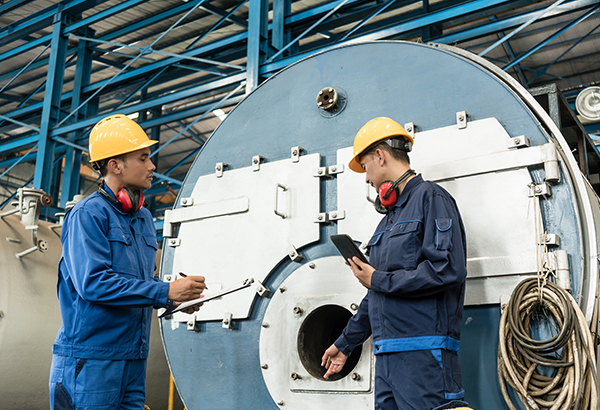Course Details
Your Growth, Our Mission

Course Description
The Training Course Will Highlight ?
This training course is primarily intended for beginners involved with the purchase, design, fabrication, or inspection of pressure vessels.
Experienced vessel designers, who would like to update their knowledge of the Code, will also benefit.
Training Objective
This training course is primarily intended for beginners involved with the purchase, design, fabrication, or inspection of pressure vessels.
Experienced vessel designers, who would like to update their knowledge of the Code, will also benefit.
Target Audience
Training Methods
This interactive Training will be highly interactive, with opportunities to advance your opinions and ideas and will include;
- Lectures
- Workshop & Work Presentation
- Case Studies and Practical Exercise
- Videos and General Discussions
Daily Agenda
Introduction ASME, the BPV Code & Design Principles
- Introduction & background to ASME Code and Section VIII
- Why U-Stamp?
- Introduction to vessels types and applications
Pressure vessels Design requirement
- General Design Criteria (Code Section UG)
- Definitions of basic design factors
- Design Conditions
- Introduction to stresses.
- Design for different parts
- Cylindrical Shells under Internal & External Pressure
- Formed Heads
- Openings and Reinforcement
- Flanges
- Supports – Saddle and Skirt
Construction and Fabrication Requirements
- Introduction for pressure vessel fabrication and construction methods
- Material selection for pressure vessels construction
- Carbon steel and Low alloy steel
- Non-Ferrous Materials
- High alloy steel
- Impact test requirement
- Requirements for Vessels Fabricated by Welding
- Service Restrictions
- Welded Joint Category
- Guidelines for Welding Material Selections
- Joint Efficiencies
- Attachment Details
- Minimum Requirements for Attachment Welds at Openings
- Welded Stayed Construction
- ASME B16.5 Socket and Slip-on Flange Welds
- Tube‐to‐Tubesheet Welds
- Accepted Welding Processes
- Qualification of Welding Procedure
- Tests of Welders and Welding Operators
- lowest Permissible Temperatures for Welding
- Cutting, Fitting, and Alignment
- Cleaning of Surfaces to Be Welded
- Finished Longitudinal and Circumferential Joints
- Repair of Weld Defects
- Requirements for Pressure Vessels Fabricated by Forging (Introduction)
- Requirements for Pressure Vessels Fabricated by Brazing (Introduction)
Examination, Inspection, Testing & Welding Requirements for new pressure vessels
- Types of radiograph according to ASME VIII
- Full radiograph
- Spot radiograph
- None radiograph
- “RT” symbols stamp on pressure vessel regarding to degree of radiograph
- Other required NDE examination for new pressure vessels
- PT, MT, VT and UT procedures, required qualifications and final report
Post Weld Heat Treatment (PWHT) requirement
- PWHT for carbon and low alloy steel pressure vessel
- Determination of holding temperature
- Determination of holding time
- PWHT procedures and final report
Pressure test requirement for new vessels
- Hydrostatic test
- Pneumatic test
- Hydro-pneumatic test
Introduction in-services pressure vessels
Introduction to ASME PCC-2 Repair of Pressure Equipment and Piping
Accreditation
BTS attendance certificate will be issued to all attendees completing a minimum of 80% of the total course duration.
Quick Enquiry
Request Info
Related Courses
Your Growth, Our Mission

